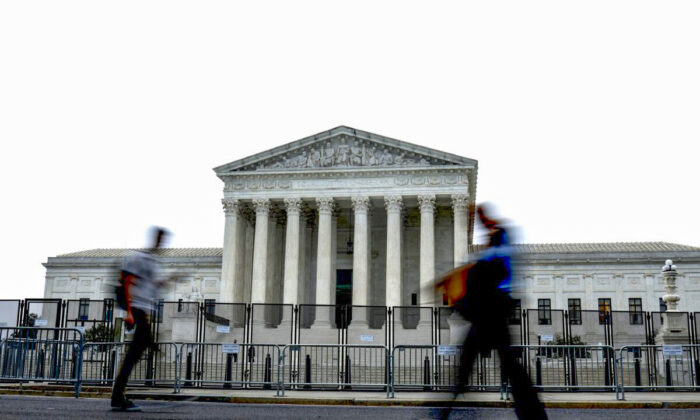The Supreme Court has agreed to review the wire fraud conviction of Louis Ciminelli, who was involved in the scandal-plagued “Buffalo Billion” development plan in upstate New York when Andrew Cuomo was the governor.
The case grew out of the ambitious Buffalo Billion Investment Development Plan (pdf), which envisioned the construction of a solar panel factory among other projects, and was aimed at attracting more than $8 billion in investments for Buffalo and the rest of western New York, creating nearly 14,000 jobs.
Prosecutors claimed Ciminelli, the CEO of LPCiminelli; Alain Kaloyeros, who is a former head of SUNY Polytechnic Institute; and COR Development executives Steven Aiello and Joseph Gerardi rigged bids for state contracts worth hundreds of millions of dollars.
They were convicted of conspiracy to commit wire fraud and other charges by a federal court in Manhattan in 2018.
The high court decided on June 30 to hear Ciminelli v. United States (,court file 21-1158). As is their custom, the justices did not provide reasons for their decision to accept the case.
The Biden administration had urged the court to reject the appeal.
Ciminelli claims that the right-to-control theory of fraud the government argued and the U.S. Court of Appeals for the 2nd Circuit upheld in the case, is invalid.
The theory holds that the deprivation of complete and accurate information a person needs to make an economic decision constitutes property fraud.
Section 1343 of Title 18 of the U.S. Code prescribes a sentence of up to 20 years in prison for anyone who devises a scheme to defraud or obtain money or property by fraud and who transmits information by wire, radio, or television in furtherance of the fraud.
In this case the lower court misapplied and overextended the theory, Ciminelli argued in his petition (pdf) filed with the court Feb. 18.
“This court should intervene once again to confirm that the federal fraud statutes are not an all-purpose protection of ethereal interests, permitting conviction even where the government cannot prove an intention to cause economic loss,” the petition stated.
Prosecutors use “this abstract information-deprivation theory when they cannot show a traditional scheme to harm property. But this court’s precedent, common law definitions of property, statutory context, and principles of statutory interpretation all confirm that the right-to-control theory is invalid.”
But Ciminelli contended that even though a scheme that “deprives a person of economic information alone, without threatening economic loss, may violate an intangible interest or a sense of moral uprightness,” it “does not rise to the level of a property fraud.”
Ciminelli’s lawyer, Michael Dreeben, told the Albany-based Times Union he was pleased the high court will take up the appeal.
“Our team is gratified that the Supreme Court has agreed to hear Mr. Ciminelli’s case, which will allow the court to address our challenge to the validity of the right-to-control theory used in the prosecution,” Dreeben said.
“We look forward to presenting our position to the court in full briefing and argument.”
The Supreme Court’s ultimate decision in the case could affect the pending appeals of other individuals convicted in the Buffalo Billion scandal.
Kaloyeros, Aiello, and Gerardi all have petitions pending before the Supreme Court.
The justices began their summer recess June 30. The court may take up the petitions at some point in the future, possibly after deciding Ciminelli’s appeal.
The decision to take up Ciminelli’s case came as the high court agreed to accept the separate appeal of Joe Percoco, formerly a longtime aide to Cuomo, a Democrat, who resigned Aug. 24, 2021, as he faced investigations for sexual harassment and for his handling of nursing homes during the COVID-19 pandemic.
Percoco is challenging the federal honest-services fraud statute after he was convicted in 2018 on conspiracy charges under the law.
He reportedly took in more than $300,000 from companies that hoped to gain influence with the Cuomo administration. He was released last year, four years into a six-year prison sentence.
Percoco had been an official in Cuomo’s office but had temporarily stepped down from the post to run the governor’s reelection campaign at the time he accepted the money.
He claims innocence, arguing that because he was not a government official at the time he accepted the funds, no corruption was involved, The Epoch Times reported.
His appeal overlaps to an extent with other cases.
Aiello was convicted of directing bribes to Percoco in order to secure his influence in the Buffalo Billion project.

